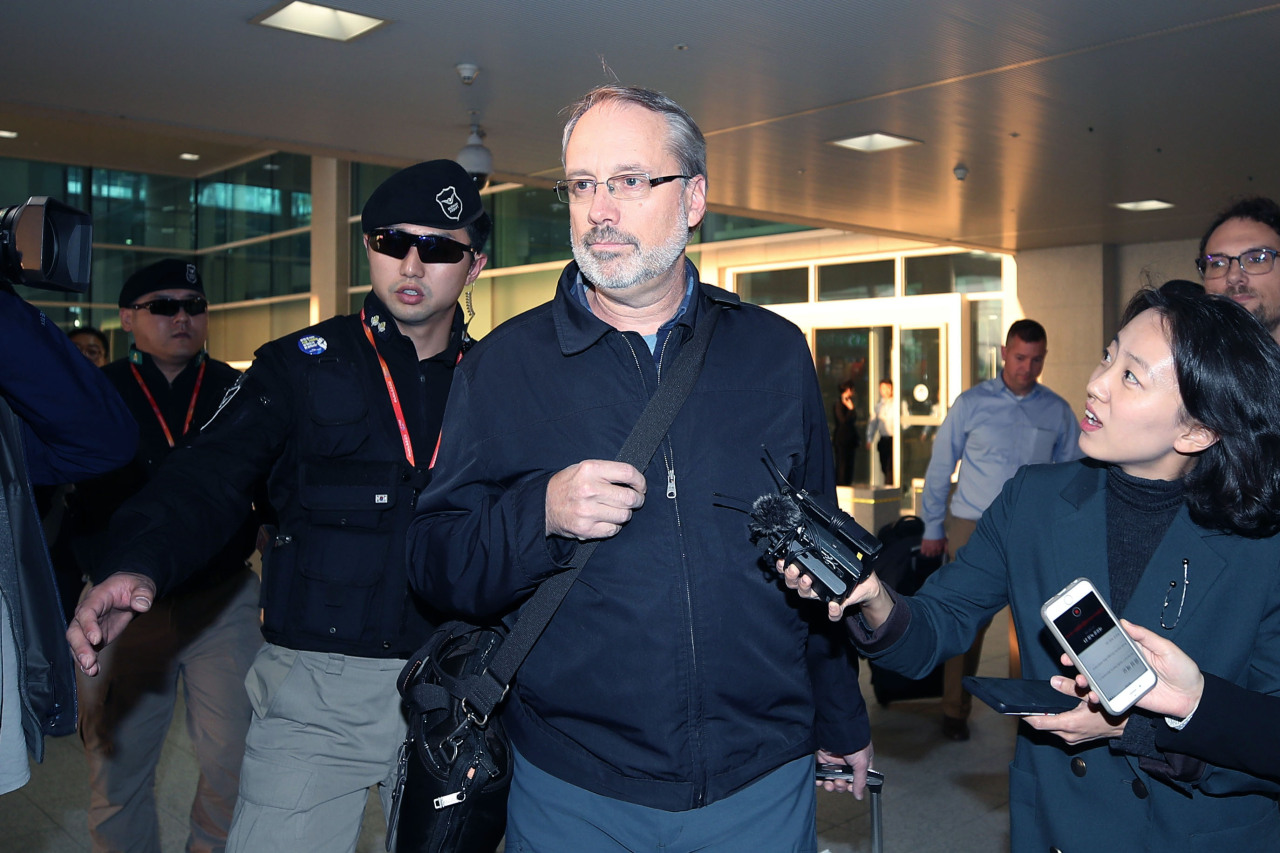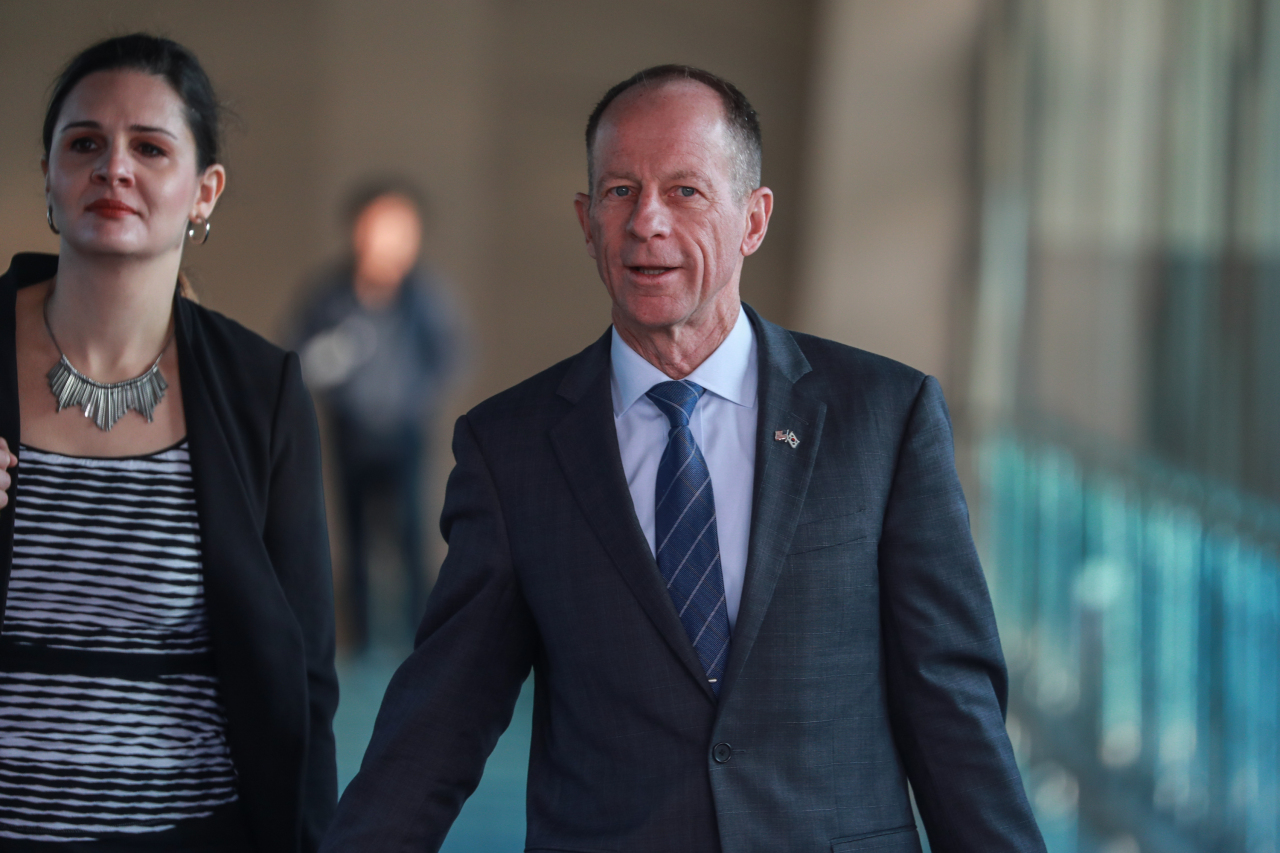Defense cost-sharing negotiations face rough road ahead
By Jo He-rimPublished : Nov. 7, 2019 - 17:48
The ongoing defense cost-sharing negotiations between South Korea and the United States face a rough road ahead, with Washington reportedly asking Seoul to pay for expenses not included in the original agreement.
The US has asked Korea to pay about $5 billion toward the cost of maintaining its troops stationed here for another year, about five times more than the current 1.04 trillion won ($861.4 million), local media reported Thursday.
This amount reportedly would include items that are not stipulated in the Special Measures Agreement that the two allies signed in 1991, such as the cost of joint military exercises and expenses incurred from the rotation of US troops.
The US has asked Korea to pay about $5 billion toward the cost of maintaining its troops stationed here for another year, about five times more than the current 1.04 trillion won ($861.4 million), local media reported Thursday.
This amount reportedly would include items that are not stipulated in the Special Measures Agreement that the two allies signed in 1991, such as the cost of joint military exercises and expenses incurred from the rotation of US troops.

Korea has been paying for part of the cost of maintaining United States Forces Korea since 1991, when the two allies inked the SMA. Korea’s share, as stated in the agreement, covers Korean civilians hired by US Forces Korea, the construction of military facilities to maintain the allies’ readiness and other forms of support.
While the exact amount has not been confirmed, Seoul officials said the US has asked Korea to contribute in different ways.
“On one side of the negotiations, we talk about the specific amount of money Korea should pay for the US troops stationed here,” an official familiar with the matter told The Korea Herald.
“On the other side of the negotiations, the US explains how much effort it is making to keep its promise to defend South Korea, and it asks for our contribution in other ways.”
While the other ways of contributing have not been revealed, they may refer to support for US policies, such as the Indo-Pacific Strategy, or participation in US operations such as the US-led international maritime force protecting ships in and around the Strait of Hormuz.
Seoul is said to have rejected the $5 billion demand, saying the amount cannot exceed a level that the National Assembly would be willing to approve.
The ministry maintained that the US did not ask Seoul to cover the cost of deploying strategic assets to the Korean Peninsula, as had been reported by local media.
“We have had two rounds of negotiations so far, and we have not been asked to pay for that item,” Foreign Minister Kang Kyung-wha said during a parliamentary session of the Foreign Affairs and Unification Committee on Oct. 30.
The Foreign Ministry also said it continues to seek a “rational” and “fair” deal, which means fair distribution of costs within the framework of the existing Special Measures Agreement.

On Wednesday, David Stilwell, US assistant secretary of state for East Asian and Pacific affairs, met with Korean government officials, including Kim Hyun-chong, second deputy director of the presidential National Security Office, and Foreign Minister Kang to discuss ongoing issues.
Cheong Wa Dae said Kim and Stilwell held “detailed, constructive and future-oriented” consultations on the cost-sharing deal.
James DeHart, the chief negotiator of the cost-sharing deal for the US, is also on an unofficial visit to Korea from Tuesday to Friday. DeHart was to hold an unofficial dinner with his Korean counterpart, Jeong Eun-bo, Thursday.
The third round of negotiations for the 11th SMA is expected to take place in Seoul in November.
By Jo He-rim (herim@heraldcorp.com)









![[Today’s K-pop] BTS pop-up event to come to Seoul](http://res.heraldm.com/phpwas/restmb_idxmake.php?idx=644&simg=/content/image/2024/04/17/20240417050734_0.jpg&u=)
![[Graphic News] More Koreans say they plan long-distance trips this year](http://res.heraldm.com/phpwas/restmb_idxmake.php?idx=644&simg=/content/image/2024/04/17/20240417050828_0.gif&u=)







![[KH Explains] Hyundai's full hybrid edge to pay off amid slow transition to pure EVs](http://res.heraldm.com/phpwas/restmb_idxmake.php?idx=652&simg=/content/image/2024/04/18/20240418050645_0.jpg&u=20240419100350)

